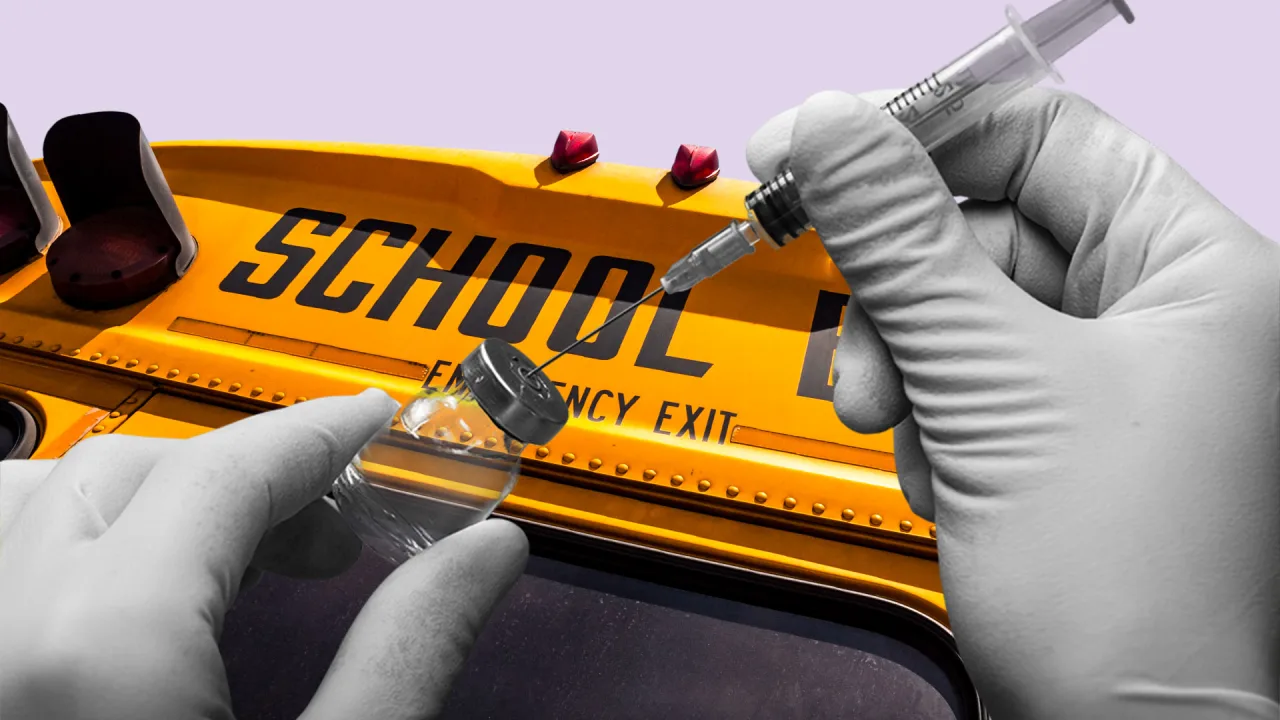
SCHOOL VACCINE REQUIREMENTS BY STATE: WHAT TO KNOW AS MEASLES OUTBREAKS RISE
Back-to-school season is an exciting time for parents, students, and school staff—full of possibilities and fresh opportunities. Unfortunately. the germs can say the same thing. Classrooms and daycares are a breeding ground for infectious illnesses which is why schools require certain vaccines. It’s a preventative measure to keep everyone safe but not everyone agrees with this. In America, all 50 states have vaccine requirements, but the specific details vary.
Here’s a look at vaccine requirements by state, exemptions, and the backlash against them.
How states typically handle vaccines for children
The majority of schools require kids to show proof of vaccinations within 14 days of the first day of school, as KFF (formerly Kaiser Family Foundation) points out. Daycare and elementary school students typically receive numerous types of vaccines.
The Centers for Disease Control and Prevention (CDC) has a whole Advisory Committee on Immunization Practices, which many states use as their policy.
All states allow exemptions if the child has a medical reason for not getting the required vaccinations. In liberal-leaning states, such as New York and California, requirements are stricter, and there are no religious exemptions. Midwest states Illinois and Indiana allow religious exemptions, while more conservative Louisiana allows personal exemptions without having to specify what they are.
A deeper look at vaccine exemptions
Some religions forbid certain medical practices, such as vaccinations. The National Conference of State Legislatures (NCSL) has an interactive map that breaks down each state’s policy using data from LexisNexis.
The data shows that 30 states and Washington D.C. allow these families and individuals to be excused. Thirteen states expanded this exemption to include “personal reasons.” Louisiana and Minnesota allow families to opt out without giving a reason while California, West Virginia, Connecticut, Maine, and New York refuse all non-medical exemption requests.
Growing backlash against vaccines
Perhaps as a reaction to the pandemic and COVID-19 restrictions, Americans’ belief in the value of childhood vaccinations appears to be dwindling. A recent Gallup poll found that only 40% of Americans believed vaccines were essential for children. In 2019, that figure was 58%.
The study also found that Americans are losing their tolerance for government regulations. In 2019, 62% believed officials should require childhood vaccinations for school-age children, but five years later, that figure dropped 11%.
Over the years, several celebrities have also spoken out against vaccinations, adding fuel to the fire. One of the most vocal is Jenny McCarthy, who blamed measles, mumps, and rubella (MMR) vaccination for giving her son autism, a false assumption that dates back to a now-disproven 1998 study by British doctor Andrew Wakefield. Other anti-vax or vaccine-skeptic celebrities share McCarthy’s anti-vax beliefs such as Alicia Silverstone, Kristin Cavallari, and Bill Maher, Rolling Stone noted in a roundup.
Disease outbreaks grow along with vaccine hesitance.
This American individualism comes at a cost. Measles, a disease most common in childhood, is back with a vengeance. According to the CDC, there have been 13 outbreaks in 2024 alone, compared to just four in 2023. Measles is a highly contagious and airborne disease that can be fatal or lead to serious complications such as blindness and brain damage. The MMR vaccine is the best way to protect kids from this.
This post originally appeared at fastcompany.com
Subscribe to get the Fast Company newsletter: http://fastcompany.com/newsletters
2024-09-04T12:31:12Z dg43tfdfdgfd